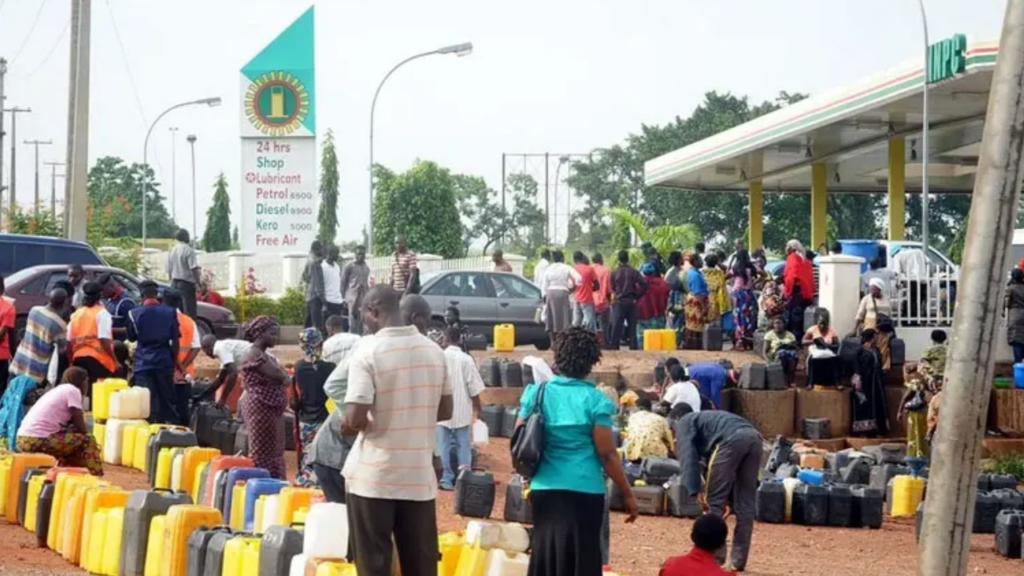Solid Minerals
Rubber Group Urges Members to Halt Sales to Stem Price Fall

TOKYO – A woman taps a rubber tree at a plantation near Kuala Lumpur, Malaysia. Natural rubber prices have been under pressure in recent weeks. Reuters
The Southeast Asian cartel that controls the majority of the world’s rubber production urged its members not to sell the commodity to help stem a 20% plunge so far this year.
Natural rubber, used to make items from tires to latex gloves, has been under pressure in recent weeks due to increasing signs of a slowdown in China, the world’s biggest buyer of the industrial commodity.
While that is a boon for companies that buy the product, it threatens to cut the incomes of farmers who rely on the rubber crop for their main income, and who have protested in the past when prices have dropped.
After a weekend meeting, the Bangkok-based International Rubber Consortium, which helps sets production and export levels and acts like OPEC of rubber, stepped in and said prices are now “unreasonably low” given stock levels in Thailand, Indonesia and Malaysia are already low and may fall further. Less supply typically helps bolster prices because demand chases fewer stocks.
 “[We] would immediately advise respective trade associations in the [three] countries to jointly encourage their members not to offer natural rubber at prevailing low prices,” said the organization, which represents more than two-thirds of the supply of natural rubber.
“[We] would immediately advise respective trade associations in the [three] countries to jointly encourage their members not to offer natural rubber at prevailing low prices,” said the organization, which represents more than two-thirds of the supply of natural rubber.
The statement was a confidence booster, sending the global benchmark Tokyo rubber futures up by as much as 3.0% Monday, just days after hitting a 17 1/2 month low Thursday. The market is valued at more than $30 billion a year, and is the second-largest tropical crop after palm oil, with benchmark futures traded in Japan and physical trading taking place primarily in Southeast Asia.
“Prices have fallen by so much that market sentiment was very negative, so investors just needed a government [authority] to say something,” said Gu Jiong, analyst at Tokyo-based brokerage Yutaka Shoji Co. 8747.TO +2.66%
Rubber futures on the Tokyo Commodity Exchange are still 17% lower year to date and the slump this time of the year is especially unusual as prices typically rise now because it is the so-called wintering season when rubber trees shed their leaves and output slows to a trickle.
“The low stock level would be further aggravated in the coming months with wintering expected to be severe in the three producing countries,” the organization added.
It has also said in recent days it is trying to work with Vietnam where rubber production is rising fast and presents another potential source of supply that could destabilize prices further.
Telling rubber traders though not sell at current low prices shouldn’t be a challenge as farmers tend to tap the trees less when prices are low.
Plus, many rubber farmers in Thailand have already downed tools to join political rallies in the capital against the ruling government, putting a further strain on the supply crunch. In the past they have also complained about the price of rubber, with the last major protest taking place from late August to early September last year. The Thai government has in the last few years implemented measures which included buying rubber at above market rates and providing subsidies for replanting, which reduces production in the short term.
Luckchai Kittipol, the chief executive of Thai Hua Rubber Public Co., the third-largest natural rubber exporter in Thailand, said his supply of raw material has already fallen by half.
– WALLSTREET JOURNAL
Business
Nigeria set to boost Naira value and foreign reserve with local gold production, as Tinubu receives gold bar
IN a significant move to strengthen Nigeria’s economy, President Bola Tinubu received a symbolic gold bar on Sunday from the Minister of Solid Minerals Development, Dele Alake.
This gesture marks the commencement of the National Gold Purchase Program (NGPP), aimed at boosting the naira’s value and enhancing the country’s foreign reserves.
Minister Alake expressed gratitude to President Tinubu for his support of reforms in the solid minerals sector.
He highlighted that the NGPP, which involves sourcing gold from artisanal and small-scale miners and refining it to meet the London Bullion Market Association’s Good Delivery Standard, will substantially contribute to Nigeria’s economic stability.
Alake stated “This initiative will significantly increase our foreign reserves and strengthen the naira. The refined gold will be supplied to the Central Bank of Nigeria, marking a crucial step in our economic strategy.”
The presentation also underscored the first commercial transaction under the NGPP, establishing a centralized gold purchasing system that integrates small-scale miners, cooperatives, and production units across the nation.
This program is expected to provide a structured market for gold, fostering economic growth and stability.
He said, “The successful completion of the first commercial transaction clearly demonstrates the National Gold Purchase Program’s effectiveness. It has increased the nation’s foreign reserves assets and shown that using the Nigerian Naira to purchase a liquid asset traded in United States Dollars, such as gold, is a viable strategy. This transaction has also underscored the potential of the National Gold Purchase Program to enhance fiscal and monetary stability.”
Alake added that the initial commercial transaction under the program resulted in a +US$5 million boost in Nigeria’s foreign reserve assets.
The transaction involved refining over 70 kilograms of gold to meet the London Bullion Market quality standard and aggregating locally mined gold, thereby infusing approximately NGN6 billion into the rural economy.
President Tinubu expressed appreciation for the Ministry’s accomplishment in advancing the government’s goal of economic diversification by acknowledging and displaying the symbolic gold bar
Solid Minerals
FG Fingers Foreigners Sponsoring Banditry For Illegal Mining

The Nigerian Government has threatened to come down heavily on foreigners sponsoring bandictory as a way of sustaining illegal mining activities in parts of the country.
The warning was handed down in Abuja by Minister, Solid Minerals Development, Dr Oladele Alake, while receiving a delegation of the Nigeria-China Chamber of Mines led by its National President, Dr. Olugbenga Ajala.
Details of these were contained in a statement released by Head, Press & PR, Ministry of Solid Minerals Development, Alaba Balogun over the weekend.
The statement cited, Dr Alake, thus, “The government will come down firmly on these unscrupulous foreign operators sponsoring banditry to perpetrate illegal mining: let me use this medium to appeal through you to tell those sponsors to desist or face the full wrath of the law.”
According to Dr Alake, the Ministry is committed to establishing a multi-agency task force that will end the activities of illegal miners and their collaborators.
The Minster made it clear that the FG had given illegal miners a 30-day-ultimatum to legitimise their businesses, quit Nigeria or incur the wrath of the law.
According to him, this will help “to streamline and structure the Small-Scale Artisanal Miners for maximum yield to the Federal Government.”
The delegation paid a courtesy call on the Minsiter at the Ministry’s headquarters in Abuja.
Energy
Fuel Scarcity: Govt Yet to Increase Pump Prices – NMDPRA

By Edozie Obasi-Eze
Amidst heightening uncertainties in the domestic petroleum products market characterised by scarcity and irregular pricing, the Nigerian Midstream and Downstream Petroleum Regulatory Authority (NMDPRA) has declared that there’s no intention to review pump prices upwards.
This was contained in an advisory issued by General Manager, Corporate Communications, NMDPRA, Kimchi Apollo.
He stated that the Nigerian National Petroleum Corporation Limited (NNPCL) had imported PMS with current stock levels sufficient for 34 days.
In an attempt to address panic buying and speculations which have seen price of Premium Motor Spirit (PMS) oscillate between N180-N250 in the Lagos area, Apollo assured that there was enough quantity of the product in the country already.
He said, “Consequently, marketers and the general public are advised to avoid panic buying, diversion of products and hoarding.
“In keeping with the Authority’s responsibilities as outlined in the Petroleum Industry Act (PIA), the Authority assures the public that it would continue to monitor the supply and distribution of petroleum products nationwide, especially during this holiday season.”













